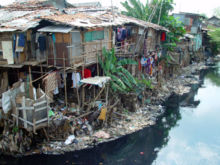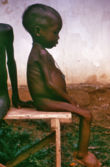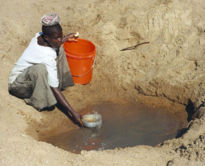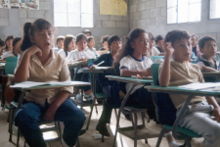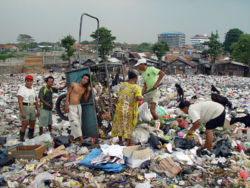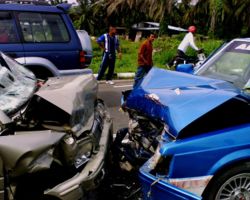Difference between revisions of "Talk:Existing scarcity"
From AdCiv
| Line 1: | Line 1: | ||
| + | ==The key issue...== | ||
| + | The more I think about it, the more I become convinced of several points {{em}} | ||
| + | * We have all the material, energy, food, water etc. that we need | ||
| + | * As we have enough resources, the question is whether we have enough know-how. (Following Bucky Fuller, I say 'know-how' to denote the subsection of intelligence/information that enables Man to make good use of his resources.) | ||
| + | * Looking at the marvellously ingenious solutions documented all over this wiki and elsewhere, it is plain that we do in fact have enough know-how | ||
| + | * So the key issue is this: How can we close the gap between know-how and practice? That one thing - closing the gap between know-how and practice - would solve the energy, food, water and education problems in pretty short order, and go a good way to solving the medical problems too. Extending Internet access will certainly turn out to be very important. Moving from private to open development models may or may not go some way to closing the gap; are open-source projects really any more agile than private ones? Maybe human nature just has a certain intransigence to it. One thing is certain: leading by example is the most important thing anyone can do. Solve your local problems by applying know-how, and publicize it. | ||
| + | |||
| + | |||
== Other == | == Other == | ||
*[http://www.newscientist.com/article/mg20026853.800-children-go-unvaccinated-as-insurers-refuse-to-pay.html Market failure for immunisation in US] (NS) | *[http://www.newscientist.com/article/mg20026853.800-children-go-unvaccinated-as-insurers-refuse-to-pay.html Market failure for immunisation in US] (NS) | ||
Revision as of 03:23, 8 July 2010
The key issue...
The more I think about it, the more I become convinced of several points —
- We have all the material, energy, food, water etc. that we need
- As we have enough resources, the question is whether we have enough know-how. (Following Bucky Fuller, I say 'know-how' to denote the subsection of intelligence/information that enables Man to make good use of his resources.)
- Looking at the marvellously ingenious solutions documented all over this wiki and elsewhere, it is plain that we do in fact have enough know-how
- So the key issue is this: How can we close the gap between know-how and practice? That one thing - closing the gap between know-how and practice - would solve the energy, food, water and education problems in pretty short order, and go a good way to solving the medical problems too. Extending Internet access will certainly turn out to be very important. Moving from private to open development models may or may not go some way to closing the gap; are open-source projects really any more agile than private ones? Maybe human nature just has a certain intransigence to it. One thing is certain: leading by example is the most important thing anyone can do. Solve your local problems by applying know-how, and publicize it.
Other
- "FATAL diseases are threatening a comeback among American children as insurers fail to meet the costs of immunisation.
- Half the doctors who responded to a survey by Gary Freed of the University of Michigan Health System in Ann Arbor said they had delayed purchasing new vaccines against childhood diseases like meningitis. Twenty per cent of family doctors said they were considering halting vaccinations of privately insured children."
Images
Collecting images for the article page.
Some concepts are very difficult to portray pictorially - esp. 'lack' of certain things which simply leads to things being done inefficiently - not fatally or disastrously so, but certainly well below ideal or optimum.
The images below are more relevant to the developing world (v. important of course), but also want to convey that many of these problems afflict the so-called developed nations too.
Lacking:
Need:
Pile
Women washing their clothes in a ditch by the side of the road
